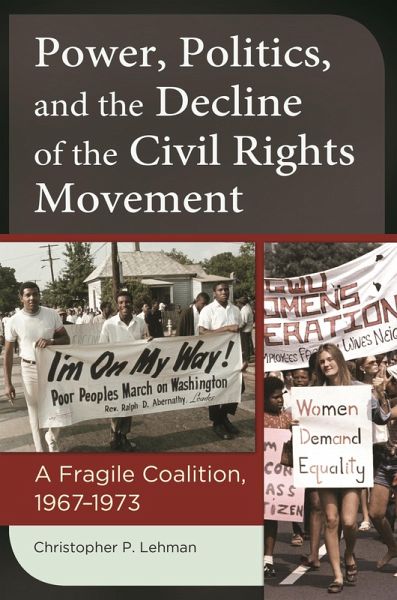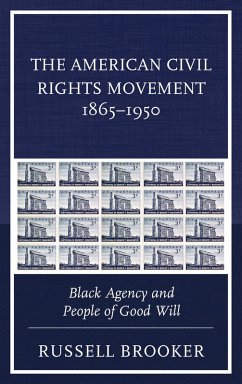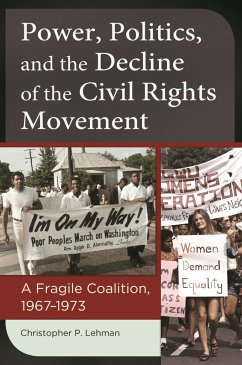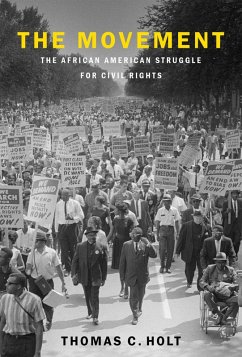
Power, Politics, and the Decline of the Civil Rights Movement (eBook, PDF)
A Fragile Coalition, 1967-1973
Versandkostenfrei!
Sofort per Download lieferbar
46,95 €
inkl. MwSt.
Weitere Ausgaben:

PAYBACK Punkte
23 °P sammeln!
The book examines how the coalition among the national African American civil rights organizations disintegrated between 1967 and 1973 as a result of the factionalism that splintered the groups from within as well as the federal government's sabotage of the Civil Rights Movement. Focusing on four major civil rights groups, Power, Politics, and the Decline of the Civil Rights Movement: A Fragile Coalition, 1967-1973 documents how factions within the movement and sabotage from the federal government led to the gradual splintering of the Civil Rights Movement. Well-known historian Christopher P. ...
The book examines how the coalition among the national African American civil rights organizations disintegrated between 1967 and 1973 as a result of the factionalism that splintered the groups from within as well as the federal government's sabotage of the Civil Rights Movement. Focusing on four major civil rights groups, Power, Politics, and the Decline of the Civil Rights Movement: A Fragile Coalition, 1967-1973 documents how factions within the movement and sabotage from the federal government led to the gradual splintering of the Civil Rights Movement. Well-known historian Christopher P. Lehman builds his case convincingly, utilizing his original research on the Movement's later years-a period typically overlooked and unexamined in the existing literature on the Movement. The book identifies how each civil rights group challenged poverty, violence, and discrimination differently from one another and describes how the federal government intentionally undermined civil rights organizations' efforts. It also shows how civil rights activists gravitated to political careers, explains the rising prominence of civil rights speakers to the Movement in the absence of political organizing by civil rights groups, and documents the Movement's influence upon Richard Nixon's presidency.













